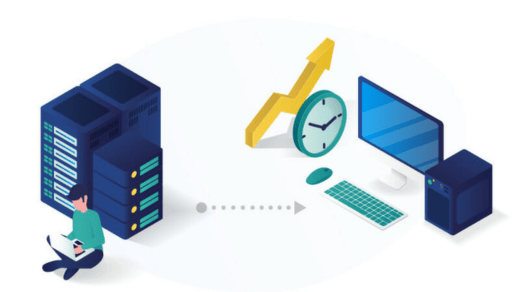Web Hosting Checklist: What to Look for in a Hosting Provider

Web Hosting Checklist: What to Look for in a Hosting Provider
Selecting the right web hosting provider is crucial for the success and performance of your website. To make an informed decision, consider these 30 points and the pros and cons associated with each when evaluating potential hosting providers:
1. Uptime Guarantee:
- Pros: Ensures your website is available to visitors.
- Cons: Downtime can harm your online presence and reputation.
2. Server Reliability:
- Pros: Reliable servers prevent frequent outages.
- Cons: Unreliable servers lead to site inaccessibility.
3. Bandwidth and Data Transfer Limits:
- Pros: Ensure sufficient bandwidth for site traffic.
- Cons: Exceeding limits can result in extra charges or site suspension.
4. Storage Space:
- Pros: Adequate storage for your website files and data.
- Cons: Insufficient storage can limit site growth.
5. Scalability Options:
- Pros: Ability to easily upgrade resources as your site grows.
- Cons: Limited scalability can hinder site performance.
6. Security Measures:
- Pros: Strong security safeguards against data breaches.
- Cons: Inadequate security can compromise sensitive data.
7. Backup and Disaster Recovery:
- Pros: Regular backups ensure data recovery in case of issues.
- Cons: Absence of backups can lead to data loss.
8. Technical Support Quality:
- Pros: Responsive and knowledgeable support is crucial.
- Cons: Poor support leads to unresolved problems.
9. Hosting Plan Options:
- Pros: A variety of plans allows flexibility in choosing the right fit.
- Cons: Too many options can be overwhelming.
10. Control Panel Ease: – Pros: User-friendly control panels simplify site management. – Cons: Complex panels can confuse beginners.
11. Server Location Options: – Pros: Data centers near your audience improve site speed. – Cons: Distant servers can result in slower loading times.
12. Website Migration Support: – Pros: Assistance with transferring an existing site. – Cons: Lack of migration support can be daunting.
13. Content Delivery Network (CDN) Integration: – Pros: CDN boosts site performance and load times. – Cons: Setting up a CDN may require additional configuration.
14. Domain and DNS Management: – Pros: Simplify domain registration and management. – Cons: Complex domain issues can arise.
15. Email Hosting: – Pros: Integration for professional email communication. – Cons: Email issues can disrupt business operations.
16. Server Performance: – Pros: High-performance servers ensure fast loading times. – Cons: Poor server performance can deter visitors.
17. Backup Power and Redundancy: – Pros: Backup systems prevent server failures. – Cons: Lack of redundancy increases downtime risk.
18. Data Center Facilities: – Pros: State-of-the-art facilities ensure server stability. – Cons: Outdated facilities may lead to server issues.
19. Acceptable Use Policies: – Pros: Understand the provider’s policies to prevent suspension. – Cons: Policy violations can result in account termination.
20. Data Privacy and Compliance: – Pros: Compliance with data privacy regulations protects customer data. – Cons: Compliance efforts can be resource-intensive.
21. Regular Software Updates: – Pros: Keep software, plugins, and themes up-to-date for security. – Cons: Neglecting updates can lead to vulnerabilities.
22. Server Monitoring: – Pros: Regular monitoring identifies and addresses issues. – Cons: Absence of monitoring can lead to unnoticed problems.
23. Technical Expertise: – Pros: Leverage technical skills or hire professionals for management. – Cons: Lack of expertise can lead to issues.
24. Pricing Transparency: – Pros: Transparent pricing prevents unexpected charges. – Cons: Hidden fees can inflate costs.
25. Money-Back Guarantee: – Pros: Allows you to try the service risk-free. – Cons: Limited refund periods may not provide adequate time for evaluation.
26. Backup Power and Redundancy: – Pros: Backup systems prevent server failures. – Cons: Lack of redundancy increases downtime risk.
27. Server Location Options: – Pros: Data centers near your audience improve site speed. – Cons: Distant servers can result in slower loading times.
28. Hosting Plan Options: – Pros: A variety of plans allows flexibility in choosing the right fit. – Cons: Too many options can be overwhelming.
29. Technical Support Quality: – Pros: Responsive and knowledgeable support is crucial. – Cons: Poor support leads to unresolved problems.
30. Acceptable Use Policies: – Pros: Understand the provider’s policies to prevent suspension. – Cons: Policy violations can result in account termination.
A thorough evaluation of potential hosting providers using this checklist can help you make an informed decision that aligns with your website’s needs and budget, ensuring a reliable and secure online presence.







